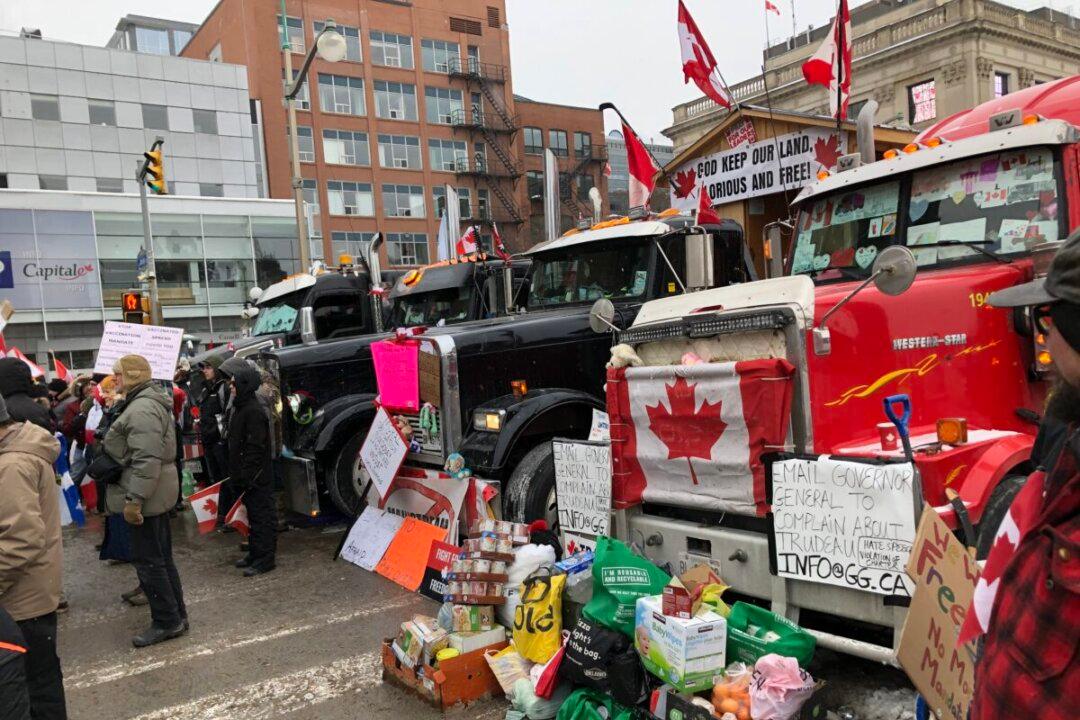A law professor says the real concern with the Emergencies Act lies not only in the measures used during the Freedom Convoy protest in Ottawa, but also in the financial measures that give the government control over people’s life savings.
“What you have now is a government that has deputized financial institutions to essentially go into their customers’ accounts and make their own judgments, in their discretion, about whether or not those accounts should be frozen, without a court order and with a free hand,” Bruce Pardy from Queen’s University told EpochTV’s American Thought Leaders program on Feb. 22.






